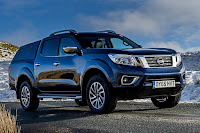Volvo XC60 Plug-in Hybrid
Choosing the 2012 North American International Auto Show to unveil the Volvo XC60 Plug-in Hybrid Concept is rather apt, given the popularity of SUVs in the United States and reluctance among buyers there to enjoy the fuel-saving benefits of diesel.
A key selling point of the XC60’s petrol hybrid system is that it lets the driver decide how power is delivered, via a choice of three modes.
As the name suggests, Pure mode relies solely upon the 69 bhp (51 kW / 70 PS) electric motor for propulsion. Driving the rear wheels, it’s linked to an under-floor 12 kWh lithium-ion battery pack and offers a range (according to the New European Driving Cycle) of 28 miles (45 kilometres).
That’s a useful distance and, with the plug-in recharging facility, it means the need to run the internal combustion engine could be a rare event. Topping up the battery from flat takes 7.5 hours with a 110V / 12A supply, but if 220V / 12V is available that time is slashed to 3.5 hours.
Hybrid mode, the default setting, concentrates on efficiency. It combines the electric motor with a 276 bhp (205 kW / 280 PS) four-cylinder turbocharged petrol engine, which sends its power to the front wheels via an eight-speed automatic transmission. With this set-up, NEDC fuel consumption is an impressive 122.8 mpg (2.3 l/100km / 102.2 mpg US), while CO2 emissions are a paltry 53 g/km.
Thirdly, Power mode shifts the focus onto performance. Harnessing the full 345 bhp (256 kW / 350 PS) that’s on offer from the motor and engine - plus an extra 44 bhp (34 kW / 45 PS) from the Integrated Starter and Generator - zero to 62 mph (100 km/h) takes just 6.1 seconds. The ISG replaces the usual starter motor and alternator and, as it’s connected directly to the crankshaft, it can help out under hard acceleration too.
Volvo is saying that the drivetrain technology featured in the XC60 Plug-in Hybrid Concept will come to market in a couple of years, but the model which will receive it first has yet to be confirmed.
Related posts:
Volvo Range Extenders
Volvo Flywheel KERS
Volvo V60 diesel hybrid
 |
| Volvo XC60 Plug-in Hybrid Concept. Scroll down for more images. |
A key selling point of the XC60’s petrol hybrid system is that it lets the driver decide how power is delivered, via a choice of three modes.
As the name suggests, Pure mode relies solely upon the 69 bhp (51 kW / 70 PS) electric motor for propulsion. Driving the rear wheels, it’s linked to an under-floor 12 kWh lithium-ion battery pack and offers a range (according to the New European Driving Cycle) of 28 miles (45 kilometres).
That’s a useful distance and, with the plug-in recharging facility, it means the need to run the internal combustion engine could be a rare event. Topping up the battery from flat takes 7.5 hours with a 110V / 12A supply, but if 220V / 12V is available that time is slashed to 3.5 hours.
Hybrid mode, the default setting, concentrates on efficiency. It combines the electric motor with a 276 bhp (205 kW / 280 PS) four-cylinder turbocharged petrol engine, which sends its power to the front wheels via an eight-speed automatic transmission. With this set-up, NEDC fuel consumption is an impressive 122.8 mpg (2.3 l/100km / 102.2 mpg US), while CO2 emissions are a paltry 53 g/km.
Thirdly, Power mode shifts the focus onto performance. Harnessing the full 345 bhp (256 kW / 350 PS) that’s on offer from the motor and engine - plus an extra 44 bhp (34 kW / 45 PS) from the Integrated Starter and Generator - zero to 62 mph (100 km/h) takes just 6.1 seconds. The ISG replaces the usual starter motor and alternator and, as it’s connected directly to the crankshaft, it can help out under hard acceleration too.
Volvo is saying that the drivetrain technology featured in the XC60 Plug-in Hybrid Concept will come to market in a couple of years, but the model which will receive it first has yet to be confirmed.
Related posts:
Volvo Range Extenders
Volvo Flywheel KERS
Volvo V60 diesel hybrid





+Front+Side.jpg)


%2BFront%2BSide.jpg)



Comments
Post a Comment